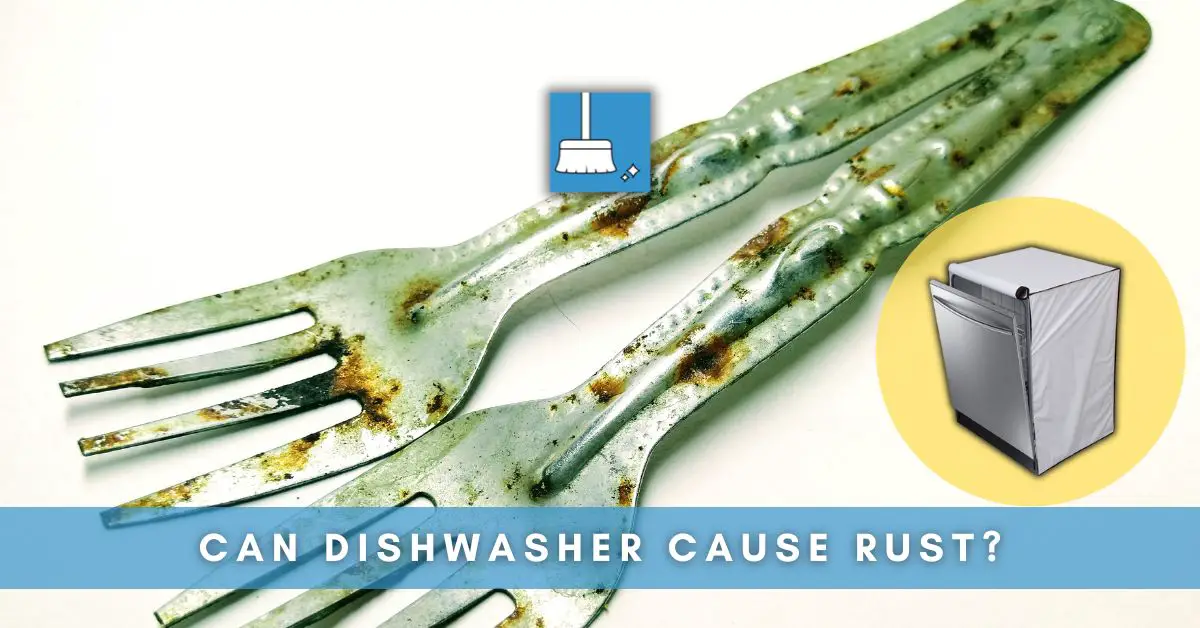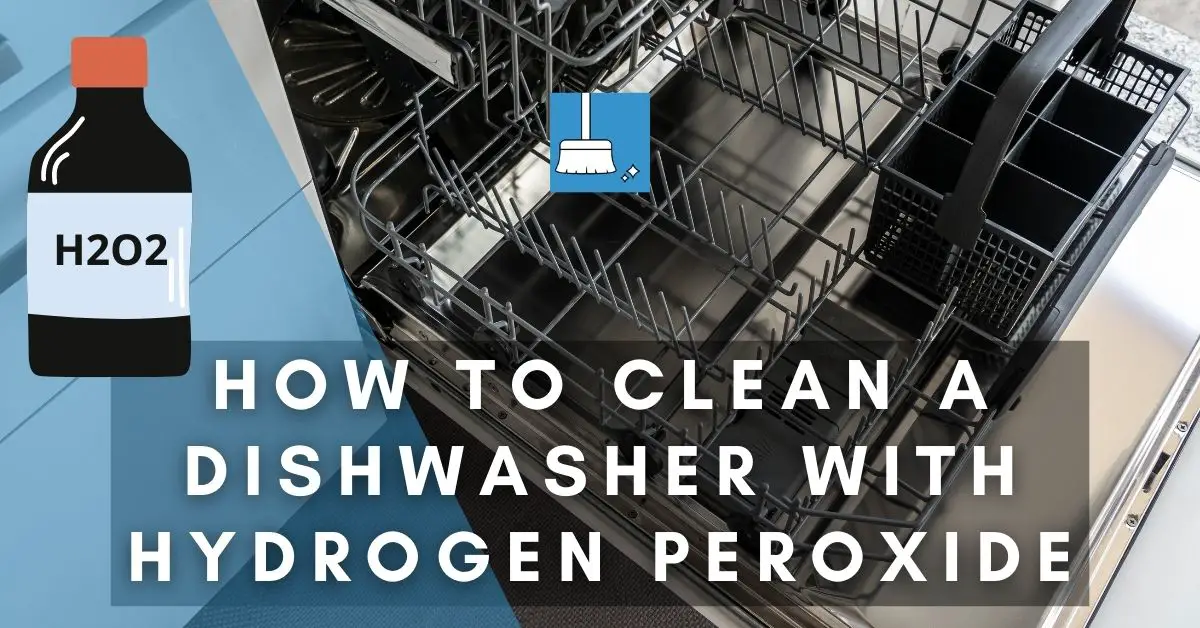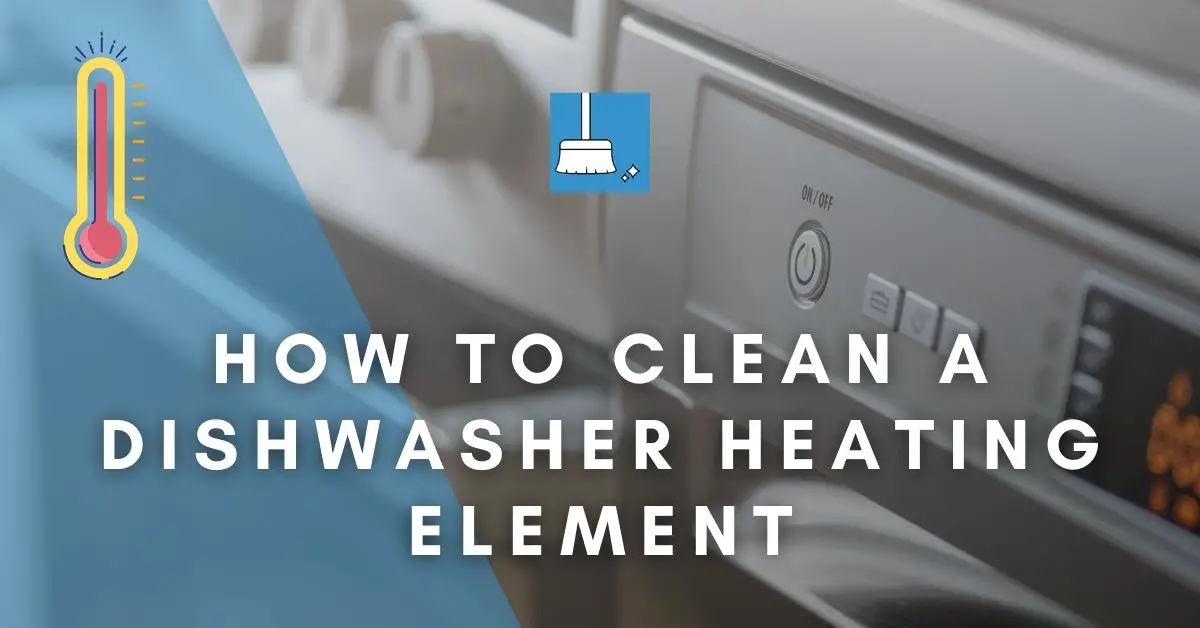In all of its shiny glory, perhaps the biggest shortcoming of silverware is its susceptibility to rust. Steel is used to make everything from pots to cutlery and even some dishes. If you have a dishwasher or are planning to buy one, you may be worried that your dishwasher will cause rust to these items.
Do dishwashers cause rust? How can you prevent this? If rust happens, is it reversible? All of these questions are valid.
This article will walk you through the answers to all these things. Keep reading to get all the information you need to know concerning dishwashers and rust.
Can Your Dishwasher Cause Rust?
Several factors are responsible for dishwashers causing rust. Depending on the care you take when using your dishwasher, rust can occur from your dishwasher to your utensils and even the dishwasher’s inner parts.
Why Does Dishwasher Cause Rust?
Rust is a natural occurrence caused by a chemical reaction of air and moisture on metal, specifically iron or other metals containing iron.
Your dishwasher is a perfect place for these three rust-causing elements to meet – dishwasher parts made of steel (which contains iron) like the racks and other silverware, washing water, and atmospheric air. Moreso, your kitchenware stays in the water much longer in the dishwasher than it would by handwashing, and moisture is the primary culprit in rusting.
The racks of dishwashers are usually coated protectively to protect the metal underneath from rust. However, this can chip or wear off, and rusting can eventually occur.
Also, dishware made of metal can start rusting, especially if exposed to some of these conditions:
1- Iron in Water
Places with hard water usually contain a lot of iron content and other metal residues in their water. Washing dishes constantly with this kind of water without an appropriate water softener can cause a brownish rust coat to form on metallic dishware.
Although some dishwashers have a built-in water softening system, it may not be very effective over time in places with hard water or people using well water.
Another way iron can get into your water is if you have old rusty water pipes. These pipes usually contain iron and other mineral residues that accelerate rusting when they come in contact with dishware.
Apart from the silverware beginning to rust, you may also notice rust stains on glass and ceramic objects and even dishwasher detergent sticking to dishes.
2- Salt
Some dishwashers have salt dispensers that help with water softening in hard water areas. While salt does not cause rust, it can hasten the process of rusting.
If some of your dishware has already begun to rust, washing it in your dishwasher water containing salt will make the process faster.
3- Washing Other Rusted Items in Your Dishwasher
Rust is not contagious in the sense that one metalware cannot simply contract it from another. However, in some ways, washing rusted dishes or pots may affect your other utensils.
It can do this by spreading loose rust into the water and leaving these stains on other utensils and dishes. This is not the same as actual rusting. Residues of brownish surface rust stains can form on any material of cookware you might have. However, these surface stains are relatively easy to wash.
However, for iron-based cookware, this constant washing with rusty water may hasten their process of actual rusting and not mere surface staining.
Is Dishwasher Rust Harmful?
Rust is not particularly harmful to humans. If you touch rusty water or get some rust stains on your skin, nothing will happen to you. Even consuming rust in small doses, (which will be the case if you eat with rusted utensils) is not likely to harm you. (Source)
There is, however, a rare group of people that may get harmed from consuming rust – people suffering from hemochromatosis. This rare disease can be hereditary and causes the body to absorb excess amounts of iron, which can be deadly to organs and the body as a whole.
Also, if you cook in a rusted pan or pot, the flavor of your food may taste altered, although not too significantly.
Finally, if you get injured by rusted materials, you risk contracting tetanus. It is extremely unlikely but possible that an injury by a rusted prong of your rack or cutlery injures you and causes tetanus.
This is not to say that rust causes tetanus; however, the bacteria that causes tetanus is usually found in rusty areas, among other places.
How Do You Keep Stainless Steel From Rusting?
Stainless steel can rust like every other material that contains iron. However, stainless steel is more resistant to corrosion and rust than different types of steel. This is why it is usually a choice metal along with aluminum over others in rust-prone environments and cookware.
Most cutleries and the interiors of some dishwashers are made from stainless steel, and they rarely rust. However, stainless steel dishwasher tubs and utensils will eventually rust if constantly exposed to things like salt, heat, and corrosive chemicals.
These things can destroy the chromium oxide on the outer surface of stainless steel, which makes it resistant to rust.
Some things you can do to prevent stainless steel from rusting include:
● Use a protective coating. It can be oil or water-based. There are several popular ones that you can quickly get at your local store.
However, these will likely not be safe for consumption, so avoid using them on things like cutlery. You can apply it to the outer parts of pots or dishwasher parts showing signs of rusting.
● Buy high-quality stainless steel. The higher the quality of your utensils, the more resistant they will be to rusting and corrosion.
● Don’t leave your stainless steel kitchenware in the dishwasher for an excessive amount of time. It is also better to dry them off after washing them.
● Avoid leaving your utensils dirty for prolonged periods. Most food items contain salt, which can hasten steel materials’ rust.
Stop Cutlery Rusting in the Dishwasher with these Tips!
Some things you can do to keep your cutlery from rusting in the dishwasher include:
1- Draining all of the food debris in the dishwasher. This reduces acidity and saltiness in the washing water, reducing the chance of rust.
2- Rinsing off cutlery before putting it in the dishwasher. This has the same effect as draining food debris from the dishwasher.
3- Use soft water or water softeners to protect your dishes. You can invest in an iron filter/water softener to help reduce the iron content in your water if you have hard water.
4- If your water lines are old steel pipes, you might need to replace them.
5- You can use tablets instead of powdered detergents. This way, there can be no incidence of using excess detergent, which can be chemically damaging to the protective coating of silverware, thereby exposing them to the possibility of rust.
Choose one that comes with a rinse aid incorporated into it to reduce the retention of water in dishes allowing them to dry faster. Since moisture is the primary culprit in rusting, doing this will reduce its chances.
Some tablets even have an anti-limescale formula. Rust occurs quickly in the presence of limescale buildup, and limescale is easily formed in dishwashers using hard water.
The anti-limescale formula helps break down any build-ups that may already exist in your dishwasher and your dishes. It also prevents new ones from forming, effectively fighting against rust.
How to Prevent Dishwasher Racks From Rusting?
Here are some of the ways you can prevent your dishwasher racks from rusting:
1- Load the dishwasher gently. Do not be in a hurry to stuff dishes and cutlery inside; You might end up scratching and damaging the protective layer of your racks, exposing them to the possibility of rust.
2- Vinegar and Baking Soda are common agents used for removing and preventing rust formation.
You can make a paste with baking soda or mix vinegar with some water and spray or apply it to the body of your dishwasher rack. Leave it for 45mins to an hour before wiping off or putting your dishwasher on to rinse.
3- Bringing out the rack to clean it once in a while can help maintain and prevent it from rusting. You should also endeavor to keep it dry when not in use.
4- If you notice that the vinyl coating of your racks is beginning to peel in some places, bring it out, reapply some liquid vinyl and allow it to dry before putting it back. Also, many people choose to spray paint the dishwasher racks to prevent rust.
5- Lastly, avoid putting some sharp utensils like knives in the rack so that they will not scratch the protective layer of the racks. You can choose to handwash these or buy a plastic rack for them.
How To Remove Rust From Cutlery?
You can remove rust from your cutlery quite easily. A scrubbing session with a wire brush and detergent may solve your problem. However, if it does not work, try the solution explained in detail below:
This is a soak and scrub approach. It is neither time-consuming nor labor-intensive, and it effectively removes rust from cutlery.
YOU’LL NEED
1- Vinegar/Baking Soda/Rust Remover (e.g., WD-40)
2- Water
3- A bowl
4- Brush (if you are using baking soda)
5- Wire brush
6- Microfiber cloth
STEPS
STEP 1 – Pour enough vinegar or rust remover into a bowl. If you are using baking soda, mix it with water to form a paste in the bowl. You can choose to use undiluted vinegar or dilute your vinegar; however, if you use undiluted vinegar, don’t let your cutlery sit in it for more than 10 minutes.
STEP 2 – Soak the cutlery in the vinegar or rust remover. In the case of baking soda, apply the paste to the affected parts of the cutlery and let it sit in the bowl. Leave the cutlery for an hour. Some rust removers like GD-40 recommend soaking for up to 24 hours.
STEP 3 – Remove the cutlery and scrub off the rust stains with a wire brush. They should come off quickly with little to no effort.
STEP 4 – Rinse the cutlery thoroughly or wash in the case of rust remover. After this, dry them with a microfiber cloth to prevent scratching.
Final Thoughts!
Rusting is not the scary situation it might look like. It is easy to prevent and can even be removed from surfaces. Furthermore, rust is not harmful to humans significantly; however, if you can avoid it, why not.
Now you know everything you need to know about dishwashers causing rust to kitchenware. With this information, you can have a rust-free kitchen and home. Feel free to share this if you find it helpful.






